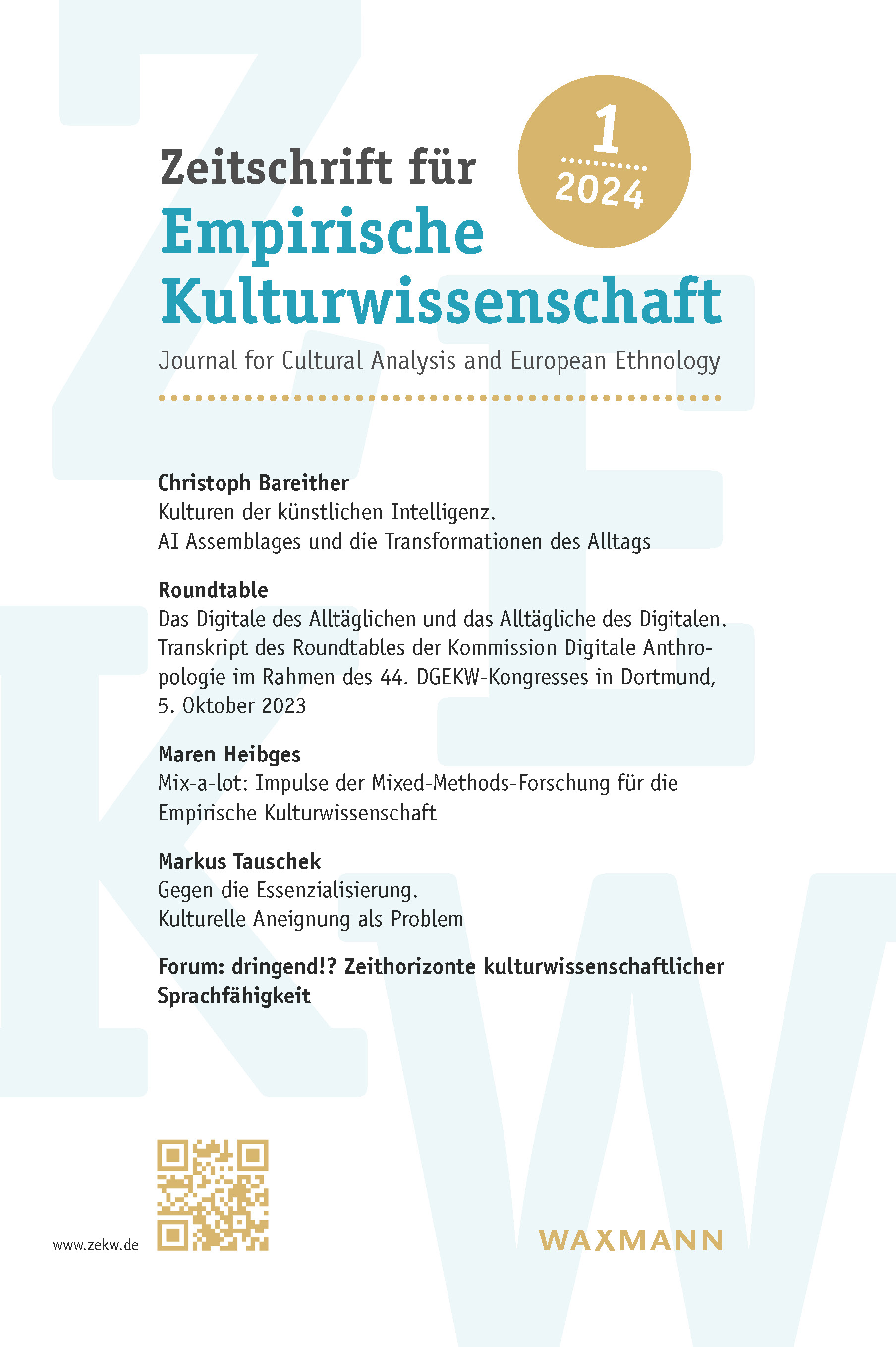Abstract
Artificial Intelligence is one of the keywords of our time, and AI systems are currently initiating numerous transformations in various areas of everyday life. How can cultural anthropology and “Empirische Kulturwissenschaft” at the interface with digital anthropology contribute to understanding these transformations and to shap?ing social and cultural negotiation processes around AI? To answer this question, this article develops the concept of AI assemblages, which aims to illuminate the dynamics of sociotechnical relations between human and more-than-human actors or compo?nents surrounding AI systems. Assemblage thinking allows to reflect upon and describe numerous “small” transformations of everyday life connected to AI without uncritically reproducing grand narratives of sociotechnical change and upheaval. On a more gen?eral level, analyzing AI assemblages is a way to study cultures of AI, that is, to study “a whole way of life” (Williams) in which routines, relationships, and cultural orders are increasingly shaped by AI systems. Three examples illustrate this perspective: AI as?semblages in memory culture (virtual survivor testimonies in Holocaust remembrance), in popular culture (social media and their algorithms), and in academic culture (gen?erative AI in academic research and teaching).

Dieses Werk steht unter der Lizenz Creative Commons Namensnennung 4.0 International.
Copyright (c) 2024 Zeitschrift für Empirische Kulturwissenschaft. Journal for Cultural Analysis and European Ethnology

